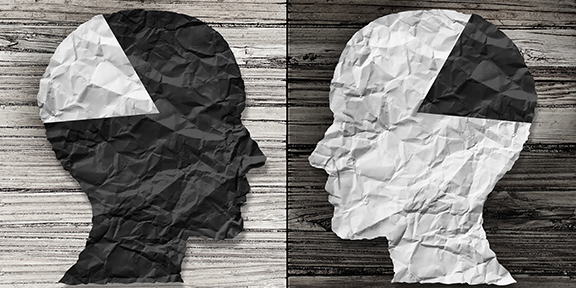Like many, I’ve been taking a close look at race both introspectively and as institutional racism. It’s been illuminating. I believe that, in this time, given the upheaval that triggered prolonged protests, no one should be exempt from self-examination. I implore all of us to take a hard, piercing stare—not just a quick glance. This isn’t just to become self-aware, although that’s a worthy goal. It’s to understand what we don’t understand, to see what we don’t see. And most importantly, to take necessary action where we can.
Like my fellow flaming liberal progressives, I am a credentialed non-racist. My years of life include growing up in a largely black community, having lots of black and brown friends, including people of color in my social circle, and lending myself to community inequity issues. Yup, credentials. But with my recent studies, I am just beginning to see what I don’t see.
I was recently asked to complete a form that asked me to answer questions according to my racial identity. Sounds simple. I’m white, I can see that. After 30 minutes, I was wondering why I couldn’t answer the questions. Then it hit me—I don’t identify as white as opposed to black or brown. I don’t even see myself as a color. My flaming liberal mind said this was good. I’m so non-racist, I don’t even have a color. I couldn’t have been more wrong.
The reason I am colorblind is because I have accepted my perception of the world as the very definition of reality. I am colorblind because my perceptions are not filtered through white, they just are—no filter required. I never had to consider the world through any other filter.
As a white person, what’s the immediate picture in your brain when someone mentions race? It’s probably not another white person. Intellectually we know that white is a race. But in this country, we don’t even acknowledge that it is one of many races. Our white world is isn’t the perception of one race, it is just the way things are. This is at the core of what is wrong.
Everyone sees through the filters of culture, experience, teachings and observations. It is inescapable. The first step is to recognize that others’ filters are different than our own, perhaps even through the same experience. Logic dictates that two people having the same experience, well, have the same experience. But this is not so. Our perception of an experience is filtered through all that life has taught us. The color of my skin has a profound impact on the lessons of life. A lifetime of a different skin color produces a very different experience.
I’m going to ask you to acknowledge that what we think we know of the world is just our own personal perception and that there are many perceptions and many realities. Now give space to others. Before picking up your perception again, look at the world without it if you can. Practice suspended judgment. Just see that reality is a multi-layered affair for mankind.
“If you can learn a simple trick, Scout, you’ll get along a lot better with all kinds of folks. You never really understand a person until you consider things from his point of view, until you climb inside of his skin and walk around in it.” – Atticus Finch in To Kill A Mockingbird by Harper Lee
If only we could. By accepting that all filters are valid, we will achieve a level of empathy and understanding that will guide us to the actions we should take to begin to recognize and tear down institutional racism.
For more on my personal journey to better understand and act on racism, see Open your multi-colored eyes and Am I a racist?

